TEHRAN, Nov. 19 -- Iranian officials said on Tuesday that "foreign elements" were behind the blasts that targeted Iran' s embassy in Lebanon's capital Beirut in the morning.
In a telephone conversation with his Lebanese counterpart Michel Suleiman, Iranian President Hassan Rouhani said that the perpetrators of the blasts "were provoked by the extremists and foreign elements to destabilize the region and Lebanon."
"Such incidents cannot divide the Lebanese people and the officials," said Rouhani, adding that "the leaders of the country will secure the unity and stability of Lebanon with prudence."
Suleiman also condemned the blasts, saying that "the Lebanese government will do its utmost to arrest and punish the perpetrators."
According to Lebanon's National News Agency, a suicide bomber blew himself up in a parking lot near the Iranian embassy at 10:15 a.m. (0815 GMT) on Tuesday, followed by another suicide car bombing near the embassy.
A local security source estimated the weight of the explosive materials used in the explosion to be around 100 kg of TNT.
Lebanon's caretaker Health Minister Ali Hassan Khalil said some 146 were injured in the blasts and the death toll reached 23, adding that this number could increase. Later reports confirmed that the embassy's cultural attache, Ebrahim Ansari, was killed in the incident.
Iranian Foreign Ministry spokeswoman Marzieh Afkham strongly condemned the deadly blasts, calling them an "inhumane crime and spiteful measure by the Zionists (Israelis) and their mercenaries, " according to Iranian official news agency IRNA.
Since the blasts took place near Iran's embassy in Beirut, Iran 's foreign ministry is following up the case with "sensitivity and special care" and will provide further information about the incident to the public, Afkham told IRNA.
Meanwhile, Secretary of the Iran Supreme National Security Council Ali Shamkhani also slammed the attacks, describing them as a sign of desperation of Israel and its allies, according to Press TV.
Shamkhani said the terrorist attacks will not dissuade Iran from continuing its support for the anti-Israeli resistance front.
"Such actions will have no impact on Iran's continued support for the Islamic resistance current," he was quoted as saying.
Shamkhani made the remark here at a meeting with the Syrian ambassador to Tehran Adnan Mahmoud.
In addition, Iranian ambassador to Lebanon Ghadnfar Roknabadi accused Israel of being behind the crime, while Israeli officials strongly denied their country's involvement in the explosion.
Abdullah Azzam Brigades, a group linked to Al-Qaida, claimed responsibility for the attacks.
On Tuesday, Rouhani told his Lebanese counterpart in a phone conversation that terrorism is a big problem for the Middle East and coordinated measures against violence and extremism are a necessity.
Iran's Foreign Minister Mohammad-Javad Zarif also warned that unless a global campaign is launched against extremism in the Middle East, the ramifications of the phenomenon will engulf the entire world, Press TV reported.
Speaking at a joint press conference with his Italian counterpart Emma Bonino in Rome, Zarif pointed to the deadly twin attacks, saying: "The tragedy should be a reminder for all of us that we need to deal with this issue. Unless we deal with this issue seriously, it will engulf all of us."
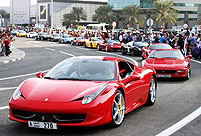 Luxury-cars parade held in Dubai
Luxury-cars parade held in Dubai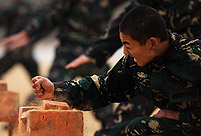 Special forces take tough training sessions
Special forces take tough training sessions Fire guts 22-storey Nigeria commercial building in Lagos
Fire guts 22-storey Nigeria commercial building in Lagos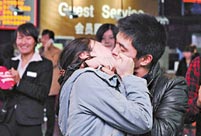 Singles Day:
Singles Day: 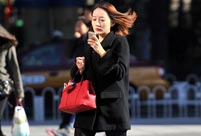 Temperature drops dramatically in Beijing
Temperature drops dramatically in Beijing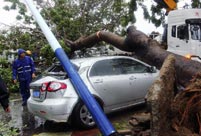 Typhoon Haiyan hits south China's Hainan
Typhoon Haiyan hits south China's Hainan Top 10 celebrity moms in China
Top 10 celebrity moms in China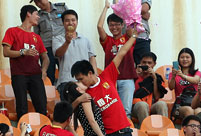 Weekly Sports Photos:
Weekly Sports Photos: Gingko leaves turn brilliant golden yellow in Beijing
Gingko leaves turn brilliant golden yellow in Beijing Maritime counter-terrorism drill
Maritime counter-terrorism drill Love searching stories in cities
Love searching stories in cities Male belly dancer in women’s fitness club
Male belly dancer in women’s fitness club  15 best rivers for travelers in world
15 best rivers for travelers in world National Geographic Traveler Photo Contest
National Geographic Traveler Photo Contest Weekly Sports Photos
Weekly Sports PhotosDay|Week|Month